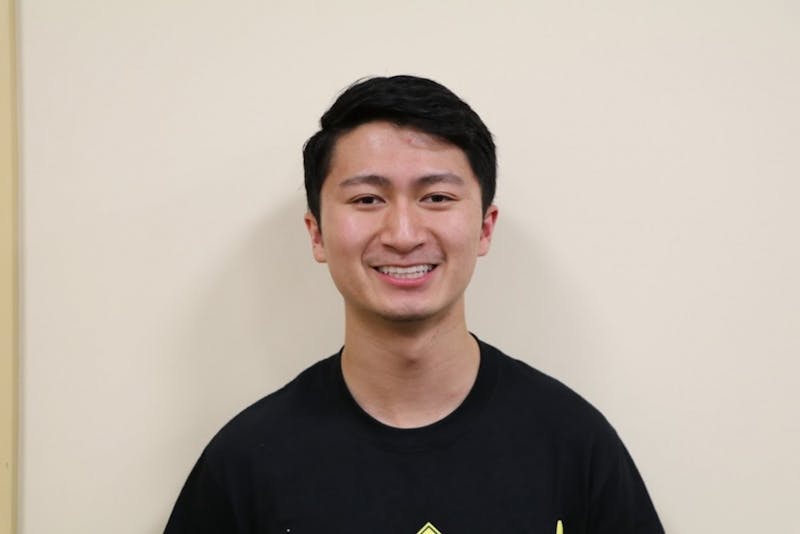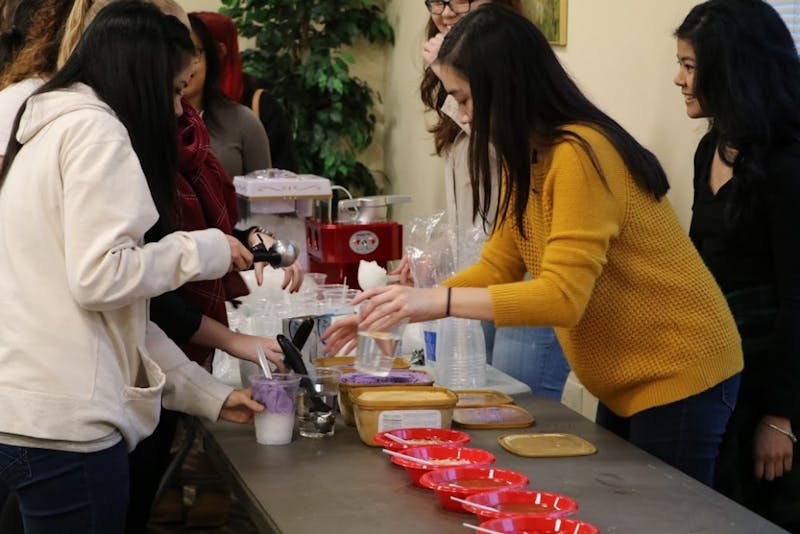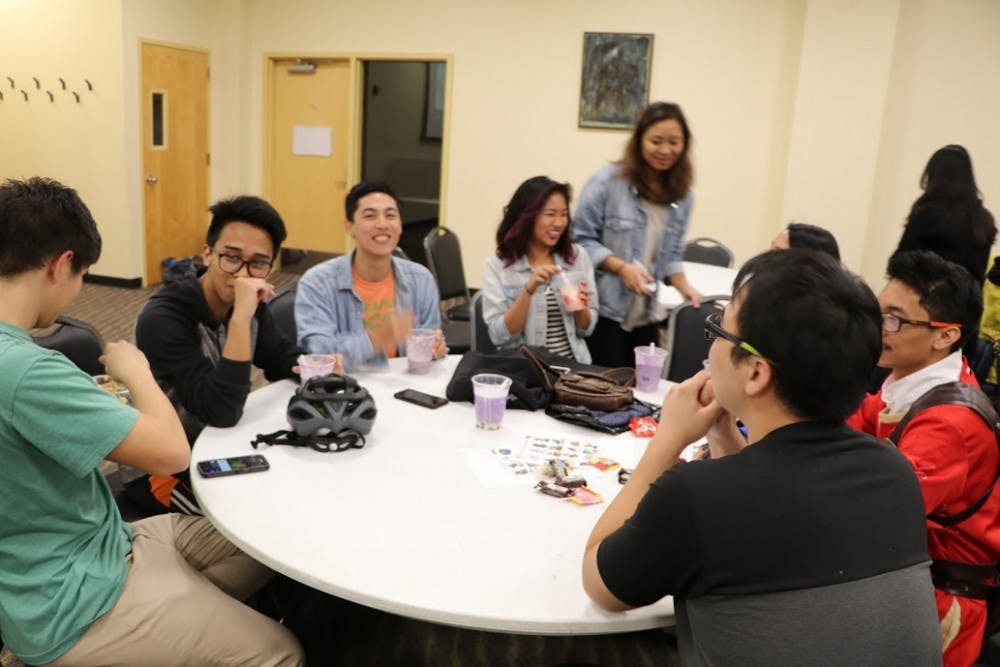Growing up, Justin Santiago Low's classmates would pick fights with him because they assumed he knew martial arts.
He found himself in the principal's office at least once a week for getting in fights with people calling him “Jackie Chan."
Growing up half-Chinese and half-Filipino, Low struggled to find his place in society. And growing up in a predominantly white community in a rural area of Oregon City didn’t help. To make it through middle school and high school, Low disconnected from his identity and eventually became absorbed by white American culture. He blocked out his Chinese identity, came home crying about peers teasing him for his Filipino accent and refused to engage in anything having to do with his culture.
The now-junior came to the University of Portland with the desire to feel he belonged without having to hide a part of his identity. He was surprised to meet many fellow Filipino students.
He eventually became the president of the Filipino-American Student Association on campus, where he and other Filipino-American students are working hard to carve their place within the UP community as they celebrate their own culture. As October marked the second annual national Filipino-American History Month, community members shared their experiences of what it is like to be a Filipino-American on The Bluff.

In October 1587, Filipino-Americans were the first documented Asian-Americans to immigrate to the U.S. As with many minorities throughout American history, Asian-Americans have been marginalized, excluded from society and entangled in various racial feuds. On campus, Asian-Americans make up about 12 percent of the student population.
Students have been an important element of the Filipino community’s history in America, with many Filipino youth organizations being established across the country.
In 2012, the Filipino-American Student Association (FASA) was established at UP. According to its constitution, the organization’s main purpose is to embrace and promote the Filipino culture by creating a supportive environment and an open community for students.
“I remember going to the first FASA meeting during my freshmen year and feeling overwhelmed by how many Filipinos I saw in one room,” Low said. “I didn’t know it was possible.”
Christina Astorga, Professor and Chair of the Theology Department, was born and raised in the Philippines, where she completed her master’s and doctoral degrees. She was then granted a sabbatical leave and moved to the United States in 2003.
In spite of her successes, from being offered fellowships at various universities to receiving the 2014 College Theology Society’s Best Book Award, she too had a difficult time settling.
“It was hard to reach who I am now,” Astorga said. "Especially (being) Filipino.”
Though she prefers not to talk about it now, cultural barriers, discrimination and competition with others contributed to this difficult ride.
After being offered a position at UP in 2014, Astorga also became the FASA adviser and says she has been amazed by the progress of the organization, particularly the annual Filipino cultural nights held in the spring.
“I was proud of the way they celebrated our Filipino values, culture and spirit,” Astorga said. “Wow is all I can say.”
Throughout Astorga’s experiences in the U.S., she never lost touch of her Filipino culture, something even her office can speak to, from the bamboo floor mats and the cultural pictures hanging on the walls, to her orchid flowers sitting on the desk. She says the environment is an important part of keeping in touch with her roots.

With the Filipino community on campus, students of Filipino-American descent have increasingly felt a sense of family and inclusion after often growing up feeling disconnected from their culture.
Freshman economics major Camille Bismonte says she felt out of touch with her Filipino culture growing up in Saratoga, Calif. In hopes of exploring her Filipino identity during high school, she searched outside her hometown and got involved with Filipino cultural activities like performing traditional dances.
When Bismonte found out that there is a Filipino club on campus, she was enthralled.
“It was like I knew everyone my whole life,” Bismonte said. “It was a very welcoming environment … like a home.”
At points in their lives, both Low and Bismonte felt ashamed of being Filipino. Although their stories are different, they have similar experiences of being excluded and discriminated because of their identity.
Nevertheless, they both found solace at the University by reconnecting with other Filipino students.
In encouraging those who may be struggling to connect with their Filipino-American identity, Bismonte reminds students not to be ashamed of it.
“Embrace it,” she says, “because it enhances your individuality.”
“The Filipino-American identity is rooted in a history of struggle, oppression, cultural value and success,” Low says, “so, own it.”
Trisha Fey Elizarde-Miller, Program Assistant for International Student Services at UP, says she sought out other organizations to reconnect with her Filipino culture after graduating from George Fox University in 2014.
There are many other active Filipino-American organizations in the Portland area outside of the University in which students can find comfort and support, including Anakbayan Portland (AB), Portland Community for Human Rights in the Philippines (PCHRP), GABRIELA National Alliance of Women’s Organization, Kapit Bisig Kabataan Network (KBKN) and Asian Pacific American Network of Oregon (APANO).
Each organization welcomes not only those who needs support after losing touch with their roots and culture, but also those who are willing to help out the Filipino community in the greater Portland area.
---
For more information about these organizations, contact Trisha Fey Elizarde-Miller at elizarde@up.edu. To learn more about UP's FASA chapter, email fasasaup@up.edu.








